16 Patterns That Keep Women Stuck in Unhealthy Relationships And 3 Bold Shifts to Break the Cycle
Loving someone should never mean losing yourself. I’ll be real: unhealthy relationships don’t always storm in with drama and warning signs. Sometimes, they tiptoe in, wrapped up in comfort and routine, feeling almost normal—until you realize you’re trading pieces of your confidence just to keep the peace.
It matters because so many of us have been there, quietly shrinking, hoping for change, and convincing ourselves that loving harder will fix things. But the truth? Some of these patterns are sneaky, and they thrive in silence and self-doubt.
I want you to feel seen, get a little fired up, and maybe even laugh at the messiness of it all. Because at the end of the day, you deserve relationships that heal, not hurt. Here’s my honest take on the patterns that keep us tethered—and the bold moves that bust us out for good.
1. Believing Love Means Endurance

You know that myth that love is about sticking it out, no matter how rough things get? That’s survival mode, not romance. I used to think that if I could just be patient enough, strong enough, or forgiving enough, things would magically get better.
But here’s the secret: real love doesn’t ask you to sacrifice your self-respect. If you’re clocking in for another round of disrespect, it’s not loyalty—it’s conditioning. Sometimes, endurance just means you’re teaching someone how much you’ll tolerate.
I promise, you’re not on this planet to win a medal for suffering. You deserve a relationship that brings you joy, not just endurance. If you’re feeling drained instead of uplifted, it’s time to question who benefits from your patience.
2. Confusing Chemistry with Compatibility
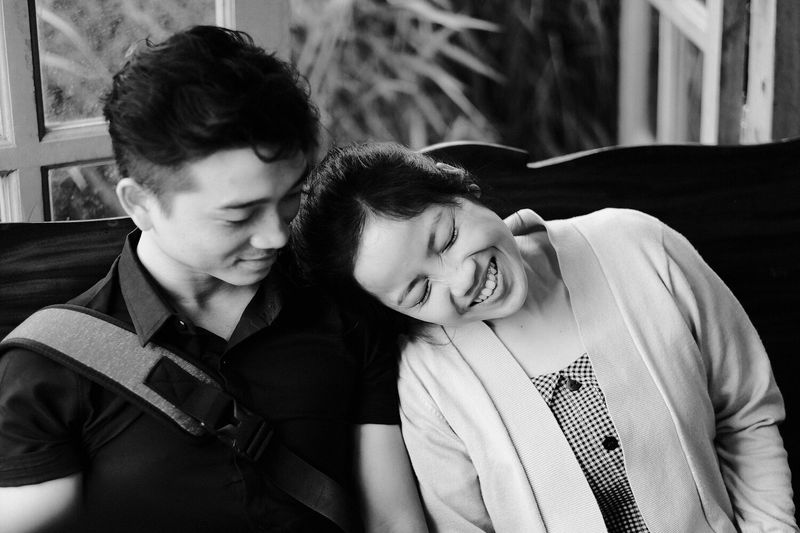
That electric feeling? Butterflies, racing heart, the rush you get when he texts back. It’s intoxicating, but let’s get honest: chemistry doesn’t always equal compatibility. I’ve fallen for the spark so many times, only to find out it was my unresolved wounds lighting the match.
Sometimes, that wild attraction is just your nervous system’s way of repeating what feels familiar, not what feels safe. It’s tricky—passion can mask a lot of problems. When the heat fizzles out, what’s left?
Ask yourself if you’re really building a partnership or just chasing that next high. There’s nothing wrong with a little thrill, but lasting connection comes from shared values, not just fireworks.
3. Thinking “I Can Fix Him” Is a Love Language

Raise your hand if you’ve ever played therapist instead of partner. The fixer-upper fantasy is so tempting—if I could just love him enough, he’ll become the man I know he could be. Spoiler: it rarely works out like the movies.
Healing is gorgeous, but only if both people want it. I learned (the hard way) that you can’t drag someone into growth. You’re not a rehab center or a life coach; you’re a person who deserves reciprocity.
Trying to fix someone means ignoring your own needs in favor of their potential. That’s not love—it’s self-abandonment. Invest in your own healing and let others do the same for themselves.
4. Prioritizing Potential Over Patterns

If I had a dollar for every time I fell for someone’s potential, I’d be rich by now. The vision of who they could become is seductive—he says he’ll change, he means well, you see the best in him. But potential is a promise, not a reality.
The real red flag? Consistent patterns, not just sweet words. If his actions keep hurting you, his intentions aren’t enough. You can’t build a life on maybes and “someday.”
Holding out for someone to become what you need only keeps you locked in place. Pay attention to what’s happening, not just what could happen. You deserve someone who shows up, not someone you have to wait for.
5. Ignoring Red Flags Because the Loneliness Feels Louder

Loneliness can be a siren song, pulling you back to what you know—even if it hurts. When the nights get quiet and your bed feels too big, suddenly, those red flags look a lot more like pink.
It’s so easy to convince yourself that a little affection is better than none. But temporary comfort often costs you long-term peace. I’ve stayed too long just to avoid feeling alone, and it never paid off.
Sometimes, the bravest thing is to choose solitude over another round of heartbreak. Remember, being alone isn’t the same as being lonely—it’s making space for something truer to find you.
6. Believing You’re “Too Much” or “Not Enough” to Be Loved Well

Ever stared in the mirror and thought, “Maybe if I was different, I’d finally be loved right?” That feeling you’re too loud, too emotional, too needy—or maybe not pretty, smart, or chill enough. It creeps in slowly, eating away at your confidence.
But these thoughts come from old wounds, not your reality. Somewhere along the way, someone convinced you that love was conditional. It’s a lie.
You deserve wholehearted love exactly as you are. Anyone who needs you to shrink doesn’t deserve a front-row seat. Your “too much” is just right for the person who gets it—and your “not enough” is more than enough for you.
7. Making Excuses for Disrespectful Behavior

I’ve poured out coffee after coffee, justifying someone’s rude text or cruel mood. “He’s having a rough week.” “It’s not usually like this.” If you catch yourself defending bad behavior more than celebrating good moments, pause.
Excuses are just a bandaid for deeper wounds. I learned that protecting someone’s reputation at my own expense never ends well. It’s not your job to explain away someone’s cruelty.
Stand up for your peace, even if it means sitting alone at brunch. The more you explain, the further you drift from your own truth. Make space for someone who doesn’t need defending.
8. Minimizing Your Needs to Avoid Conflict

Have you ever tiptoed around your own needs, hoping to dodge an argument? I used to swallow my feelings just to keep things smooth. It’s exhausting, shrinking yourself to avoid ruffling feathers.
But peace without honesty isn’t peace at all—it’s just quiet resentment. When you silence your needs, you disappear a little more each day. That’s not making things better, it’s just making you smaller.
Share your feelings, even if it feels risky. The right person will meet you halfway, not punish you for speaking up. Your needs matter, conflict or not.
9. Mistaking Control for Care
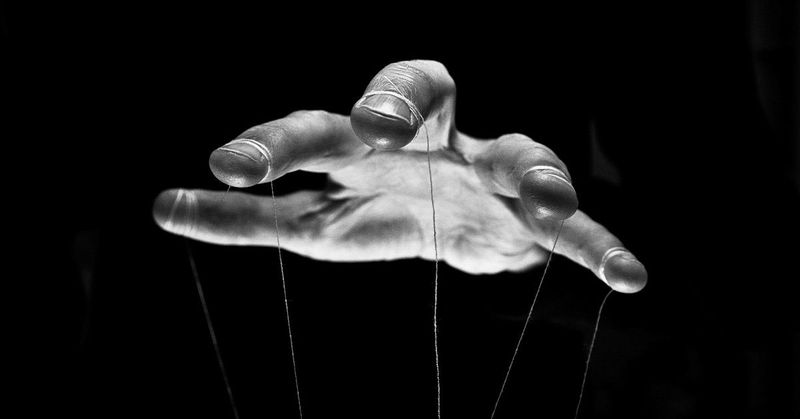
Jealousy dressed up as affection? Text check-ins disguised as love? Been there, and it’s not cute. Control can wear a sweet face, but underneath, it squeezes out your freedom.
When someone starts policing your time or friendships, they’re not being protective—they’re being possessive. It’s not romance, it’s insecurity wrapped in concern.
You deserve someone who trusts you to live your own life. Real care supports your independence, not stifles it. If you feel more monitored than loved, trust that feeling—it’s telling you something important.
10. Feeling Responsible for Their Happiness

Ever felt like it’s your job to keep someone smiling? I was so busy managing his moods that I forgot about my own. It’s a trap—thinking that if you just try harder, he’ll finally be happy.
Here’s the truth: you’re a partner, not a cure. Their healing isn’t your assignment. Trying to fill someone else’s emotional gaps drains you dry.
Love means support, yes, but not self-sacrifice. You get to have your own joy, separate from theirs. Let them carry their own happiness, and reclaim yours.
11. Confusing Emotional Chaos with Passion

Some relationships feel like a rollercoaster—so much drama, so many highs and lows. I used to think that was passion, but really, it was just chaos with better lighting.
Drama isn’t proof of connection. It’s just noise that distracts you from the emptiness underneath. Constant emotional storms aren’t romantic; they’re exhausting.
A healthy relationship feels steady, not stormy. If you’re confusing adrenaline for affection, pause and check if you’re more tired than thrilled. Peace is underrated.
12. Waiting for a “Better Moment” to Leave

When is the right time to go? I used to wait for the perfect moment: after the holidays, after his promotion, after one more apology. But there’s always another reason to stay.
Truth is, your peace doesn’t have a calendar. The longer you wait, the more you lose yourself. There’s never a flawless exit—there’s just the moment you decide you’re done.
Don’t let timing steal your freedom. If you’re waiting for a sign, this is it: your life is worth more than another delay.
13. Staying Because of Shared History, Not Shared Values

Sometimes, it feels wrong to leave because you’ve built a life together—photos, memories, mutual friends. I get it. The weight of history can feel heavier than the pull of your needs.
But here’s the deal: shared memories aren’t a relationship glue. Values are. If your core beliefs and dreams are miles apart, no amount of nostalgia can bridge the gap.
Don’t let the past dictate your present. You deserve a relationship that honors who you are now, not just who you used to be.
14. Letting Fear of Starting Over Outweigh the Fear of Staying
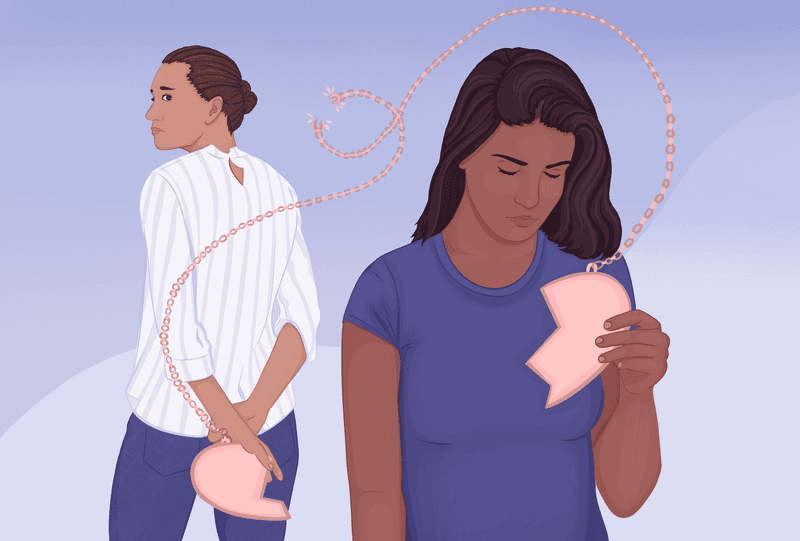
The fear of starting from scratch? It’s real. I’ve stayed way too long because the unknown felt scarier than what I already knew—even if what I knew was draining me.
But here’s what they don’t tell you: staying in the wrong place is just as scary, only slower. It wears you down, little by little, until you barely recognize yourself.
Choosing the new path is terrifying, but it’s also how you find new joy. Don’t let fear decide for you. Every fresh start holds something you haven’t even dreamed of yet.
15. Letting Other People’s Opinions Shape Your Decisions
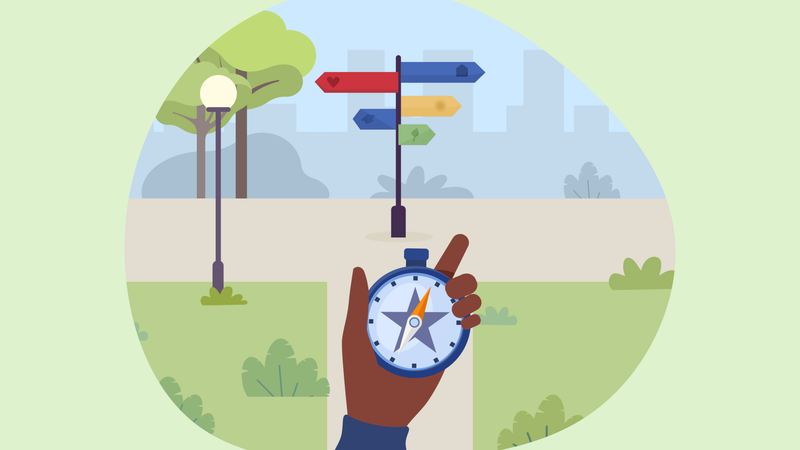
“But he seems so nice!” “Are you sure you want to end it?” I’ve heard it all. The peanut gallery can be loud, and it’s tempting to let their voices drown out your own.
But you’re the one living this relationship—not your mom, not your best friend. Letting other people’s opinions steer your choices will only leave you more confused.
Your intuition is your compass. Trust it. You don’t owe anyone an explanation for choosing your peace.
16. Believing This Is the Best You’ll Get

“What if this is it?” That question haunted me for years. When you’ve been worn down by disappointment, it’s easy to believe crumbs are a feast.
But settling is a slow heartbreak. The idea that you should be grateful for the bare minimum is a lie told by your fears, not your heart.
You are worthy of so much more than just getting by. Your joy isn’t a luxury—it’s a birthright. Don’t let resignation steal your future happiness.
17. The Chaser-Runner Dynamic

Ever felt like you’re always chasing while he’s always slipping away? The push-pull dance is exhausting—one minute you’re close, the next, he’s gone again. I’ve been the chaser more times than I care to admit.
It feels exhilarating at first, but it’s a cycle that goes nowhere. Both partners get stuck in roles, never really meeting in the middle. The runner gets space; the chaser gets anxiety.
Healthy love is about mutual effort, not endless pursuit. If you’re the only one reaching out, it’s time to step back and see who follows.
18. The Caregiver-Dependent Trap
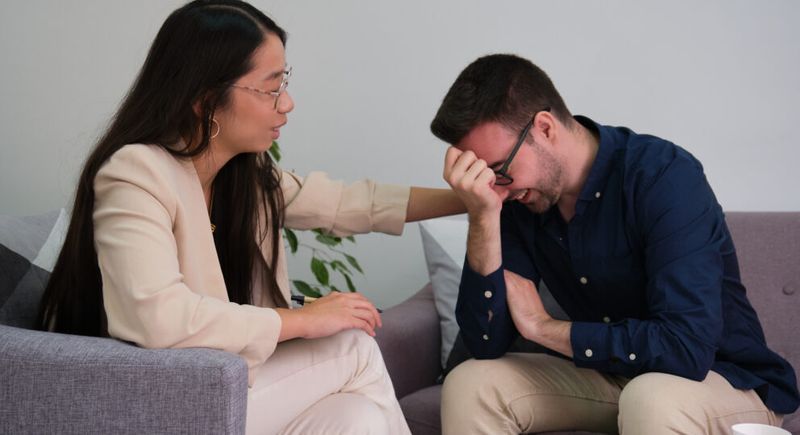
If you’ve ever become the caretaker in your relationship, you understand the burden. Cooking, reminding, soothing—your life revolves around their needs. What started as nurturing turns into a lopsided partnership.
Eventually, resentment builds. You’re not their parent, you’re their partner. Constant caretaking can erase your own needs and leave you depleted.
It’s not selfish to want reciprocity. A relationship is healthiest when both people stand on their own feet, choosing each other—not one propping up the other all the time.
19. The On-Again, Off-Again Cycle

That on-again, off-again rollercoaster? I’ve ridden it, and let me tell you, it never leads to a happy ending. The cycle starts with hope, followed by disappointment, and then a rush of reunion—all over again.
Every breakup feels final, but something pulls you back. Before you know it, the cycle repeats, leaving both of you dizzy and stuck. It’s not romantic; it’s just circular pain.
Breaking this pattern means making the split stick. Let closure actually mean closure—so you can finally move forward and heal.







